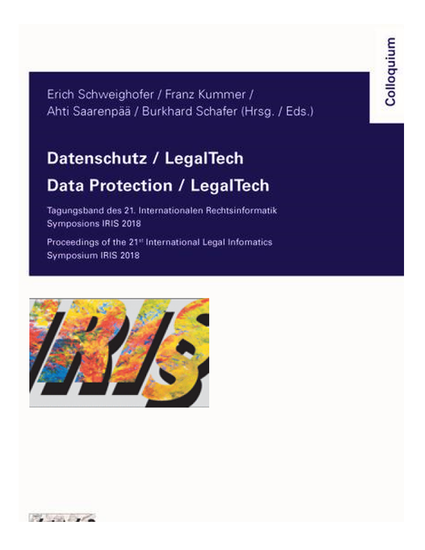
Presentation
Data Protection in Human-Robot Interaction: A Focus on Healthcare Robots
International Legal Informatics Symposium (IRIS)
(2019)
Abstract
Population aging is a critical social problem that developed countries like Europe, United States and Japan are facing in the recent years. Policymakers have introduced many options to help solve this problem, including: creating additional positions for foreign caregivers to work, developing an elderly-friendly infrastructure in communities, or deploying robotics technology for supporting elderly people. Though the introduction of healthcare robots, they can support the elderly in walking, climbing, and getting out of bed independently, as well as non-physical supports such as daily communication to provide the elderly necessary medical information, or help with isolation and loneliness. On the other hand, robotics makers have more incentives to increase the intelligent capability of their healthcare robotic products with the recent trends of AI. However, robots equipped advanced autonomy will be much easier to acquire huge amount of personal sensitive data when repetitively providing healthcare to patients, also its may cause new data protection issues such as (1) Intelligent Agent’s Autonomy: How should we design a framework to avoid stored data be inappropriately treated or transported by intelligent agents? (2) Care Receiver’s Autonomy: How to ensure elderly people who have cognitive disorders such as dementia express their consents with data protection correctly via their interactions with advanced human-robot interaction interfaces? And lastly, (3) Physical Embodiment: We may see healthcare robots as the physical extension of intelligent agents. Suppose there is something wrong about feeding data through the training process of machine learning, healthcare robots might behave abnormally, or the worst-case scenario it might cause physical injury to patients. In other words, the consequences are safety critical. However, there is no research discussing the relationships between data protection and the safety in human-robot interactions about emerging healthcare robotic technologies. The purpose of this project is to consider a comparative analysis between Europe, the United States, and Japan to the data protection for emerging healthcare robots with advanced AI capabilities by using an interdisciplinary approach of human-robot interaction (HRI) and law. Two characteristics of this paper are comparative and interdisciplinary.
Keywords
- Data Protection
Disciplines
- Engineering and
- Law
Publication Date
Winter February 19, 2019
Citation Information
Yueh-Hsuan Weng. "Data Protection in Human-Robot Interaction: A Focus on Healthcare Robots" International Legal Informatics Symposium (IRIS) (2019) Available at: http://works.bepress.com/weng_yueh_hsuan/167/
